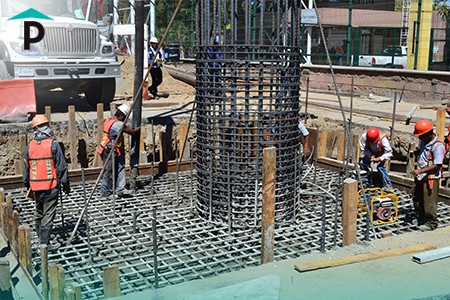Demonstrating that you have the ability to fulfill a contract is vital in the construction industry. Surety bonds are legally binding contracts that enable you to ensure your obligations are met when you are bidding for and securing a project. When you are working on government contracts or private projects, a surety bond can provide both you and your client with financial protection. There are multiple different types of developer surety bond and indemnity coverage available from Pinnacle that will provide you with the vital protection that you need.
Call: (844) 612-7238 to get started
What Is a Developer Surety Bond?
The purpose of a surety bond is to create trust and reassurance for a client when bidding on and completing a construction project. The surety bond is intended to pay out a defined amount if the principal doesn’t meet its obligations to the client. This means that neither you nor your client will lose any money if you are unable to fulfill your obligations and complete their project. You pay a premium to the surety to cover your business for any issues that might occur, just like other types of insurance. Development indemnity coverage insurance helps to cover the costs of development indemnity policies for further protection for all parties.
Types of Bonds
There are multiple types of surety bonds, including developer bonds. Many of the terms for bonds are fairly interchangeable, but there can also be some differences between the bonds available from Pinnacle Surety & Insurance Services. 
Some of the bonds that can provide protection for your projects include:
- Contract bonds – Designed for construction projects, they provide financial security by ensuring you don’t lose out on any money if any issues arise that lead to the delay or cancelation of a project.
- Developer bonds – Developer bonds guarantee the completion of improvements to a subdivision property. They help to provide reassurance that the work will be carried out efficiently and reliably.
- Bid bonds – Bid bonds are a type of construction bond that protects the owner or developer during the bidding process, which compensates owners if the terms of the bid can’t be met.
- Performance bonds – Performance bonds provide a guarantee against contractors failing to fulfill their obligations so that the contract can be fulfilled and the project can be completed. Also known as site improvement bonds, completion bonds, subdivision improvement bonds, or plat bonds.
- Payment bonds – Payment bonds are used by contractors to ensure subcontractors and suppliers will be paid even if something goes wrong.
- Subcontractor bonds – This type of bond pays the subcontractor to ensure the completion of the project.
- Public works bonds – A guarantee that public officials will carry out their duties.
Although there are many different names for developer surety bonds and some of them will provide slightly different types of protection, they all essentially fill the same role. They exist to provide protection for contractors and their clients when they are bidding on a project or working on a project. They reassure the obligation that the work will be completed or that they will not incur any loss if the work is delayed or unable to be completed.
Subdivision Improvement Bonds
Subdivision improvement bonds are a type of performance bond that cities, countries, and other public agencies require owners or developers to hold. They differ from standard performance bonds because they transfer the financial burden of completing the land improvements from the public body to the owner or developer of the property. When the improvements are complete, the ownership is transferred to the public entity. These improvements might include things like grading or street improvements. You might also see this type of bond specifically called a grading bond.
The bond provides financial assurance to the public agency that the improvements will be funded and completed by the developer or owner. A payment bond is often included along with the subdivision bond to ensure laborers, subcontractors, and suppliers are paid.
Completion Bonds for Construction Projects
Completion bonds for construction offer a type of surety bond that protects owners and developers and helps to allow for the smooth completion of a project. A completion bond guarantees that the project will be completed to the standard that is set out in the contract so that those in charge don’t have to worry. Our completion bonds can define the timeframe and cost of the project, providing a guarantee that each will be met. Developers may choose to require a completion bond for the construction team that they require so they are protected, while contractors benefit by being able to ensure their clients that the project will be completed and they won’t be negatively impacted financially if the project goes over budget. 
Completion bonds are different to contract bonds, although they are often confused. A contract bond guarantees the completion of a contract, whereas a construction completion bond is designed to provide assurance that an entire project will be completed. A project that uses a completion bond might also involve contract bonds to guarantee the fulfillment of several contracts.
Payment Bonds
Payment bonds may also be known as labor and material bonds. These bonds provide protection by ensuring laborers, subcontractors, and material suppliers get paid. This offers reassurance to anyone working on the site or supplying materials. They are more likely to work with you if you offer them protection. It also reassures owners and developers, ensuring their money will go to the people who have completed the work even if the main contractor experiences problems.
Bid Bonds
Bid bonds are designed to be between three different parties – the contractor, the entity the bond is running to, and the bond company. The main purpose of the bid bond is to protect the entity the bond is running to, which may be a public entity or a private one. If the contractor’s bid is successful, the parties will enter into a contract at the agreed amount.
Pinnacle provides surety bonds to ensure contractors, developers and other entities are able to protect themselves and their finances. Our developer bonds provide multiple types of protection for developers to give them peace of mind.


